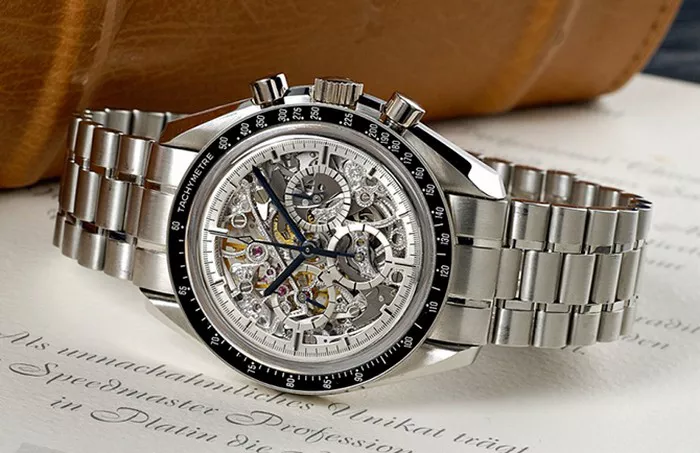Omega, a distinguished Swiss watchmaker, has established a legacy synonymous with precision, innovation, and craftsmanship. As the global market becomes increasingly interconnected, questions about the origin of luxury goods, including watches, arise. In this comprehensive exploration, we delve into the question: Are Omega watches made in China? Unraveling the complexities of Omega’s production processes, we seek to provide a nuanced understanding of the brand’s manufacturing landscape.
1. The Swiss Heritage of Omega: A Legacy of Excellence
Omega, founded in Switzerland in 1848, is deeply rooted in the country’s watchmaking heritage. The Swiss watch industry is renowned for its commitment to precision engineering, artisanal craftsmanship, and adherence to stringent quality standards. Omega’s Swiss origins are a testament to its commitment to upholding these principles.
2. Global Production Network: A Strategic Approach
While Omega’s heritage is Swiss, the brand, like many other luxury watchmakers, has adopted a global production network. This strategic approach allows Omega to leverage expertise and resources from various regions while maintaining the core principles of Swiss watchmaking. The brand’s commitment to quality remains unwavering.
3. Swiss Made: The Mark of Authenticity
The “Swiss Made” label is a hallmark of authenticity and quality in the watchmaking industry. Omega proudly bears this mark on its timepieces, signaling that a significant portion of the watch’s value is attributed to Swiss manufacturing. The stringent criteria for earning the “Swiss Made” label ensure that Omega watches meet the high standards set by the Swiss watch industry.
4. Swiss Movement: Precision at the Heart
The movement, often considered the heart of a watch, is a critical component. Omega, true to its Swiss heritage, manufactures its movements in Switzerland. The intricate and precise craftsmanship that goes into creating the movement aligns with the brand’s commitment to excellence and sets Omega apart as a true Swiss watchmaker.
5. Co-Axial Escapement: A Technical Milestone
Omega’s adoption of the Coaxial escapement, a significant technical innovation in watchmaking, further underscores its dedication to Swiss engineering. The Coaxial escapement reduces friction in the movement, enhancing accuracy and longevity. This innovation is a testament to Omega’s commitment to advancing Swiss watchmaking expertise.
6. Swiss Craftsmanship: The Art of Finishing
The craftsmanship involved in finishing a watch is a defining aspect of Swiss watchmaking. Omega’s attention to detail in case finishing, dial design, and hands aligns with the aesthetic and qualitative standards set by the Swiss watch industry. The meticulous craftsmanship is a distinguishing feature of Omega watches.
7. Omega’s Swiss Facilities: Manufacturing Excellence
Omega operates state-of-the-art facilities in Switzerland, where watchmakers, technicians, and artisans collaborate to bring each timepiece to life. These facilities encompass the entire watchmaking process, from design and prototyping to assembly and quality control. Omega’s commitment to Swiss manufacturing excellence is reflected in these facilities.
8. Components Sourcing: A Global Perspective
While the core elements of Omega watches are crafted in Switzerland, certain components may be sourced globally. This includes materials like precious metals, crystals, and, in some cases, straps. However, the critical watchmaking components, such as the movement, remain rooted in Swiss manufacturing.
9. Omega’s Collaboration with China: Beyond Manufacturing
Omega, like many global brands, may collaborate with entities in China for aspects beyond manufacturing. This could include marketing initiatives, partnerships, and retail operations. However, these collaborations do not compromise the Swiss-made integrity of Omega watches.
10. Counterfeit Concerns: Navigating the Market
In the context of the global market, concerns about counterfeit watches are prevalent. Some counterfeit watches may claim to be Omega or mimic the brand’s designs. Consumers must purchase from authorized dealers to ensure the authenticity of their Omega timepieces.
Conclusion: Preserving Swiss Excellence in Every Tick
In answering the question, “Are Omega watches made in China?” the evidence overwhelmingly points to the preservation of Swiss watchmaking excellence. While certain components may be globally sourced, Omega’s core identity as a Swiss watchmaker remains intact. The brand’s commitment to the “Swiss Made” label, the Coaxial escapement, and meticulous craftsmanship uphold the legacy of precision and innovation that defines Swiss watchmaking.
As enthusiasts and collectors delve into the world of Omega, they can confidently embrace the authenticity of a brand that bridges tradition and modernity. Omega’s commitment to Swiss manufacturing, coupled with its global perspective, ensures that each watch is a testament to the enduring legacy of excellence that has characterized the brand for over a century. In every tick of an Omega timepiece, the heartbeat of Swiss watchmaking resonates, a timeless melody of craftsmanship, precision, and unwavering dedication to quality.

